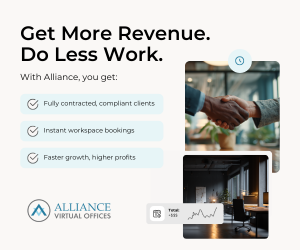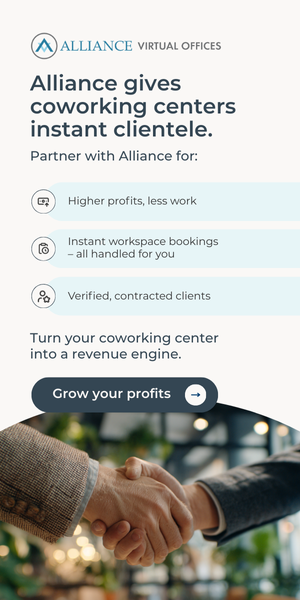Hand selected flexible workspace news from the most reliable sources to keep you ahead of the pack. We find all the latest news, so you don’t have to. Morning and afternoon updates. Stay in the know.
Here’s what you need to know today:
- Deloitte To Close Four Offices NEW
- Preparing Employees For The New Future Of Work NEW
- The Office Will Still Play A Vital Role NEW
- Report Finds Promising Future For Flexible Offices
- WeWork Remains Confident In Its Future
- Benefits Technology Is Needed In The Remote Era
Deloitte To Close Four Offices
Deloitte has revealed it will close four of its 50 British offices as it reevaluates its real estate portfolio in the midst of the pandemic. This includes offices in Gatwick, Liverpool, Nottingham and Southampton.
The company will still keep the staffers on from these locations in remote working positions, joining the millions of people who have transitioned to working from home recently.
“COVID-19 has fast-tracked our future of work programme, leading us to review our real estate portfolio,” said Stephen Griggs, Deloitte’s UK managing partner. “Any proposed change is to our ‘bricks and mortar’, not our presence in these regions.”
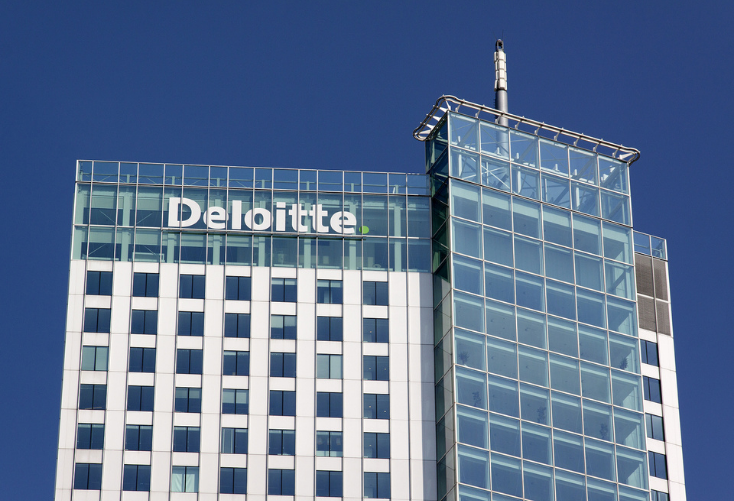
Preparing Employees For The New Future Of Work
It is clear that COVID-19 has accelerated changes to the workforce that were already underway. Although this transition has been jolting to society as a whole, now is the time to take advantage of the opportunities and focus on what can be accomplished in the near future.
The world appears grim right now as we continue to see the lowest levels of global growth since the Great Depression, but humans have untapped skills that have the ability to push through these challenges.
Now, we must focus on advancing our own skills in order to work alongside advanced technology. However, in order for a business to thrive, employees need to be in top form physically and mentally.
So what can businesses do to empower their workforce and trudge through one of the most challenging moments of history?
First and foremost is to work with employees to create a development plan that prepares them for the future.
Additionally, offering more flexibility and security so workers have a say in when and where they work is essential. After months of working from home, we now have a better understanding of the importance of allowing workers the power to choose.
Lastly, make sure that employees’ mental health and wellbeing are nurtured. Without a healthy mind and body, employees cannot play a contributing role to a company.

The Office Will Still Play A Vital Role
Despite many organizations committing to remote working policies permanently, those in the workspace industry know that the office is not going anywhere.
In fact, some experts believe that the flexible office industry in particular will see an uptick in demand in the near future.
“People may not be going to their corporate HQs for a little while, but the expectation on them from their firms is to deliver,” said Jonny Rosenblatt, cofounder of flexible office company Spacemade. “For many, the idea of working from home for another six months is soul-destroying, so they are seeing a need to find somewhere flexible, ideally local and with Covid safety measures in place.”
Many workers have expressed wanting to come back to the office to get away from the distractions of working from home, while also socializing with their colleagues.
Additionally, companies looking to downsize their real estate footprint may start offering flexible workspace options to serve as satellite offices for those who still want a workspace to come into.
A survey from Spacemade found that half of respondents would prefer to spend at least part of the work week in a local office.
“The mix of remote working and being in a HQ is going to be different for every organisation, but getting the right balance and providing the right solutions will be critical to every company’s success,” said Rosenblatt.
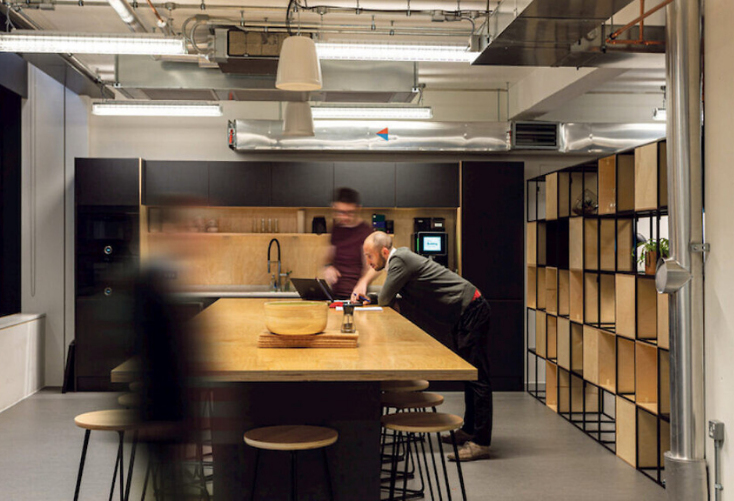
Report Finds Promising Future For Flexible Offices
Cushman & Wakefield have revealed interesting details in their new report Coworking 2020: What’s Next on the Flexible Workspace Horizon?
Although flexible offices have faced innumerable challenges throughout the pandemic, the report finds that the industry could actually become a sweeping solution for companies looking to bring workers back into a safe workspace, particularly outside of major cities.
The report indicates UK markets like Bristol, Glasgow and Leeds as ones to watch for their anticipated growth.
However, Cushman & Wakefield also predict that there will be an increase in managed workspaces, which will look more like a traditional lease with flexible terms.
Activity has, of course, been impacted this year as flexible office take up accounted for only 4.2% of total take up across the UK’s major markets.
The report also reviews the impact that previous recessions have had on the flexible office sector, and expect that companies opting for more flexible solutions will flock to these spaces.
“Whilst we believe the long-term fundamentals of the flexible workspace sector are strong, COVID-19 is accelerating changes that we have been seeing in the last 12-18 months,” said Emma Swinnerton, EMEA Head of Flexible Leasing Solutions at Cushman & Wakefield. “As flexible workspace providers recover from a tough few months, we believe greater adoption of this risk sharing model together with increased occupier demand will continue to drive growth in the medium-long term.”

WeWork Remains Confident In Its Future
Despite the countless obstacles that WeWork has had to overcome over the past year, the coworking firm says it is still focused on its main goal.
“We knew that we were the leader in flex [space],” said Peter Greenspan, global head of Real Estate at WeWork. “We knew that we had innovation deep in our soul when it came to work and what it means to have people in an office. We also knew that the hypergrowth and the business model had to be reorganized.”
Now, the company is trying to rebuild its brand, focus on its core business and achieve profitability. According to Greenspan, the firm has spent the last year talking to landlords instead of shutting down its offices and filing for bankruptcy.
When Adam Neumann was still CEO of WeWork, he attempted to delve into numerous industries including education and residential. Greenspan said that cutting out these ventures was necessary to end the year with a strong balance sheet, even if it meant laying off several employees.
While the coworking industry as a whole has experienced a turbulent year due to the pandemic forcing millions of people to work from home, analysts predict that these spaces will make a comeback as companies seek flexible workplace solutions in the near future.
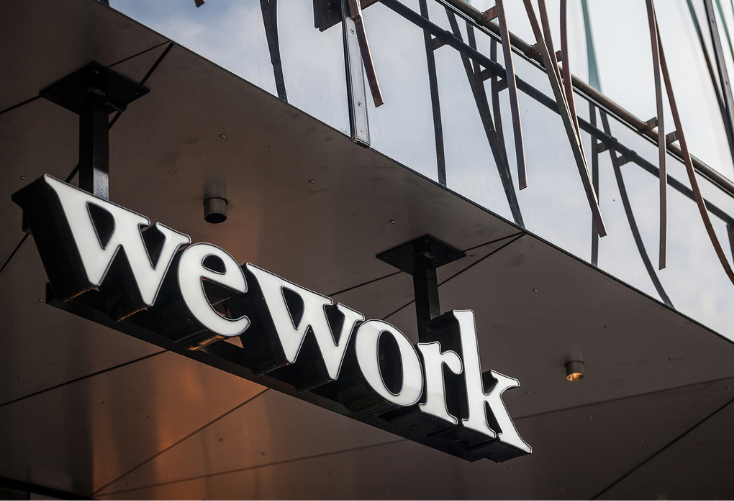
Benefits Technology Is Needed In The Remote Era
Whether employees return to the office part of the time or not, one thing that is certain is technology will be at the core of how we work for the foreseeable future.
Health and safety have become the number one priority for organizations. Technological advancements make it easy to mitigate the risk of employees contracting the virus, while nurturing the employee experience.
According to a recent Gartner report, 41% of employees could be working from home at least part of the time by the end of 2021. Knowing this, it is the responsibility of companies to have the resources needed to allow employees to conduct business from home in an efficient manner, as well as providing them curated benefits.
More than ever before, employees are seeking reassurance and guidance from their employers. By providing them with benefits technology that they can access whenever needed, companies can fulfill their efforts to be as flexible as possible.
Even more, employers can showcase their benefits on job listings in order to better recruit and retain top talent.
Offering personalized benefits technology not only shows workers that their company values them, but it creates a stronger bond that is much needed during these challenging times.



 Dr. Gleb Tsipursky – The Office Whisperer
Dr. Gleb Tsipursky – The Office Whisperer Nirit Cohen – WorkFutures
Nirit Cohen – WorkFutures Angela Howard – Culture Expert
Angela Howard – Culture Expert Drew Jones – Design & Innovation
Drew Jones – Design & Innovation Jonathan Price – CRE & Flex Expert
Jonathan Price – CRE & Flex Expert


